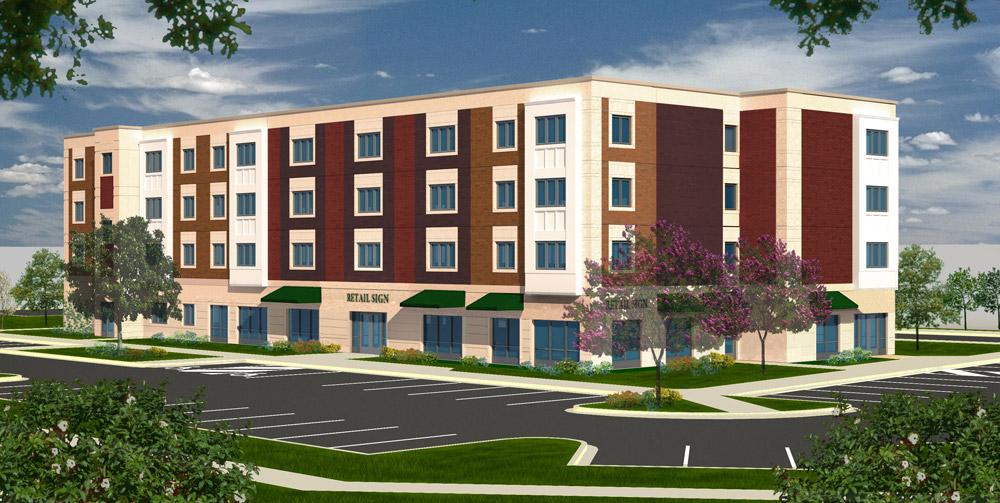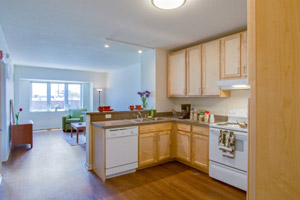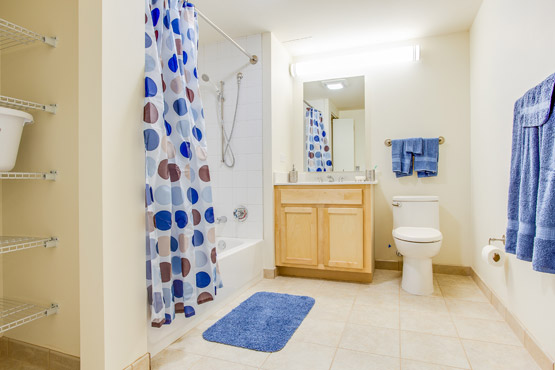

Target
Individuals with disabilities with incomes at or below 60 percent of area median income (AMI).
Development information
Type: Supportive rental housing
Total Units: 39
Total Affordable Units: 39
Affordable Rents:
- Studio: $800
- One-bedroom: $865
Funding Sources
- Village Bank & Trust: $1 million
- CDBG IKE Grant: $1,994,338
- DCEO Grant: $102,130
- Low-Income Housing Tax Credits: $9,855,694
Success
The Village respected the Kenneth Young Center, a community mental health and senior service center, and was open to working with all partners involved in the development. The coordination between ownership, property management and the Kenneth Young Center (service provider) also has been instrumental.
Lessons learned
The leasing process was lengthy and challenging to organize given the many stakeholders.
The development
Myers Place is located in the Village of Mount Prospect and was the first supportive housing development to be built in Chicago’s northwest suburbs. The project, first conceived in 2010, sought to provide supportive housing options in an area struggling to meet the needs of people living with disabilities. The North/Northwest Suburban Task Force on Supportive Housing for Individuals with Mental Illness partnered with the Kenneth Young Center, a community mental health and senior service center, and with the support of the Corporation for Supportive Housing, chose Daveri Development Group, LLC to move the project forward. With the support of local officials and residents of Mount Prospect, Daveri chose a site near Dempster Street and Busse Road, close to public transit, green space, restaurants and other amenities.
The innovative four-story development was finished in 2013 and features 18 studio units and 21 one-bedroom apartments. The development was imagined as an alternative to assisted living facilities and nursing homes. Residents work toward self-sufficiency in an independent living environment, with on-site case management that focuses on mental health and substance abuse services and vocational support for individuals who are work ready. The first floor includes retail space, which is fully leased by the Kenneth Young Center for community-based health services programs. The development also includes a community and computer center and private storage areas for each resident.

Creating affordability
All 39 units in the development came fully furnished and are affordable to a range of incomes. Seventeen units are available to individuals with incomes at or below 60 percent AMI ($34,800 for a two-person household in 2014), 14 for those at or below 50 percent AMI ($29,000 for a two-person household in 2014), and 8 for those at or below 30 percent AMI ($17,400 for a two-person household in 2014). Rents are set at $800 for studio apartments and $850 for one-bedrooms. The units were fully leased within three months from the start of the application period; there is currently a waiting list.
Public involvement
Despite previous challenges in trying to bring supportive housing to the northwest suburbs, there was little to no public resistance received throughout the community engagement process. Daveri was intentional about garnering support from the supportive housing and disability communities and gave the public opportunities to weigh in during the design phase. Myers Place also had the full support of the Village’s mayor and board of trustees, who valued the Kenneth Young Center’s role in the community and saw the benefits a mixed-use, supportive housing development could bring to the area.
Contact
Daveri Development
312-870-4747